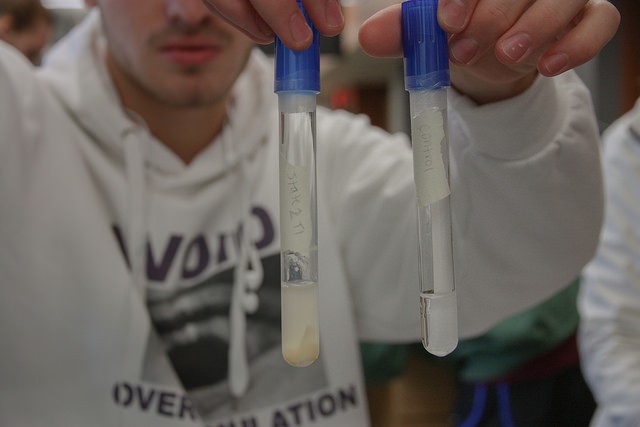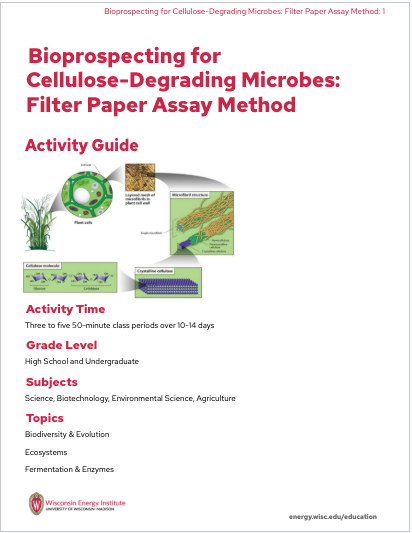
Students collect samples that they predict will contain communities of cellulose-degrading microbes and test for the ability of microorganisms in their samples to break down pure cellulose (filter paper). In the process, groups collect evidence to test predictions about which environmental microbial samples will be the most effective for degrading cellulose. By comparing results across groups, students can begin to uncover patterns and develop explanations about the types of environments that support cellulose-degrading microbes. This lab method is nearly identical to that used by GLBRC researchers and student results could help scientists discover new enzymes for efficient biofuel production.

Subjects
Agriculture
Biology
Engineering
Environmental Science
Topics
Biodiversity & Evolution
Ecosystems
Fermentation & Enzymes
Concepts/Skills
Decomposition, respiration, biomolecules, enzymes, microbial ecology, data analysis, scientific argumentation
Prior Knowledge
Type of carbohydrates, basic cell wall structure, enzyme function, role of microorganisms in decomposition, matter and energy transformations
Time Required
Five to seven 50-minute class periods over 12-18 days (can be adapted to shorter times)
Required Supplies
Test tubes, test tube shaker, filter paper, Miracle Gro fertilizer (see teacher instructions for details and supplier info.)
